- Home
- Неизвестный
McSweeney's Enchanted Chamber of Astonishing Stories
McSweeney's Enchanted Chamber of Astonishing Stories Read online
Table of Contents
Title Page
Also from McSWEENEY’S
INTRODUCTION
LUSUS NATURAE
WHAT YOU DO NOT KNOW YOU WANT
VIVIAN RELF
MINNOW
ZEROVILLE
LISEY and THE MADMAN
I
II
III
IV
V
VI
7C
THE MINIATURIST
THE CHILD
DELMONICO
THE SCHEME of THINGS
THE DEVIL of DELERY STREET
REPORTS of CERTAIN EVENTS in LONDON
THE FABLED LIGHT-HOUSE at VIÑA DEL MAR
MR. AICKMAN’S AIR RIFLE
I
II
III
IV
ABOUT THE CONTRIBUTORS
THIS BOOK BENEFITS 826 VALENCIA
Copyright Page
Also from McSWEENEY’S
McSweeney’s Mammoth Treasury of Thrilling Tales
Created in Darkness by Troubled Americans
McSweeney’s Quarterly Concern
The Believer
INTRODUCTION
MICHAEL CHABON
I SUPPOSE there is something appealing about a word that everyone uses with absolute confidence but on whose exact meaning no two people can agree. The word that I’m thinking of right now is genre, one of those French words, like crêpe, that no one can pronounce both correctly and without sounding pretentious.
Among those of us who use the term genre to label regions on a map (sf, fantasy, nurse romance) and not sections of an atlas (epic, tragedy, comedy), there is a deep and abiding confusion. To some of us, “science fiction” is any book sold in the section of the bookstore so designated. The typeface and imagery on the cover of the very attractive Vintage International edition of Nabokov’s Ada would look distinctly out of place there, with the starships and the furry-faced aliens and the electron-starred vistas of cyberspace. Ada, therefore, is not science fiction. Accepting such an analysis sounds like the height of simplemindedness, and yet it is an analysis that you, and I, and both those who claim to love and those who claim to hate science fiction make, or at least accede to, every time we shop in a bookstore.
Genre, in other words, is—in a fundamental and perhaps ineradicable way—a marketing tool, a standard maintained most doggedly by publishers and booksellers. Though the costly studies and extensive research conducted by the publishing industry remain closely guarded secrets, apparently some kind of awful retailing disaster would entail if all the fiction, whether set on Mars or Manhattan, concerning a private eye or an eye doctor, were shelved together, from Asimov and Auster to Zelazny and Zweig. For even the finest writer of horror or sf or detective fiction, the bookstore, to paraphrase the LA funk band War, is a ghetto. From time to time some writer, through a canny shift in subject matter or focus, or through the coming to literary power of his or her lifelong fans, or through sheer, undeniable literary chops, manages to break out. New, subtler covers are placed on these writers’ books, with elegant serif typefaces. In the public libraries, the little blue circle with the rocket ship or the atom is withheld from the spine. This book, the argument goes, has been widely praised by mainstream critics, adopted for discussion by book clubs, chosen by the Today show. Hence it cannot be science fiction.
At the same time, of course, there is a difference—right?—and sometimes an enormous difference, between, say, Raymond Chandler’s “The King in Yellow,” and F. Scott Fitzgerald’s “Crazy Sunday,” even though they are both set in and around Hollywood at roughly the same period. A difference that consists not merely of details of backdrop, diction, mores, costume, weather, etc., nor merely of literary style, nor of the enormously different outlook and concerns of the respective writers. If that were all there was to it, the distinction would be akin to that between any two books, chosen at random, from the shelves in the tony part of the bookstore: say Kathy Acker and William Trevor. (Keep that question in mind, though. Ask yourself just how damned di ferent a book has to be, on the inside, from its neighbors, to get it consigned to the genre slums at the local Barnes & Noble. More different than Moby-Dick is from Mrs. Dalloway ?)
No, there are the rules to be considered. These things—mystery, sf, horror—have rules. You can go to the How to Write section, away from the teeming ghettos, and find the rules for writing good mystery fiction carefully codified in any number of manuals and guides. Even among experienced, professional writers who have long since internalized or intuited the rules, and thus learned to ignore them, there are, at the very least, particular conventions—the shuttling of the private eye from high society to the lower depths, the function of a literary ghost as punishment for some act of hubris or evil—that are unique to and help to define their respective genres. Many of the finest “genre writers” working today derive their power and their entertainment value from a fruitful self-consciousness about the conventions of their chosen genre, a heightened awareness of its history, of the cycle of innovation, exhaustion and replenishment. When it comes to conventions, their central impulse is not to flout or to follow them but, flouting or following, to play. A great example of this is the British writer Terry Pratchett, whose giddy, encyclopedic, and ruthless knowledge of the history and conventions of sf and fantasy, in the service of a subversive wit and an elemental storytelling gift, has made him one of the UK’s best and most widely beloved authors.
The genre known (more imprecisely than any other) as “literary fiction” has rules and conventions of its own: the primacy of a unified point of view; letters and their liability to being read or intercepted. And many of literary fiction’s greatest practitioners, from Jane Austen to Angela Carter, Salman Rushdie to Steven Millhauser, display a parallel awareness of the genre’s history and conventions, and derive equivalent power and capacity to delight from flouting, mocking, inverting, manhandling, from breaking or ignoring the rules.
Like most people who worry about whether it’s better to be wrong or pretentious when pronouncing the word genre, I’m always on the lookout for a chance to drop the name of Walter Benjamin. I had planned to do so here. I intended to refer to Benjamin’s bottomless essay “The Storyteller,” and to try to employ the famous distinction he makes in it between the “trading seaman,” the storyteller who fetches his miracle tales, legends, and tall stories from abroad, and the “resident tiller of the soil” in whose memory are stored up all the sharp-witted wisdom tales, homely lore, and useful stories of a community. Benjamin implies that the greatest storytellers are those who possess aspects, to some extent, of both characters, and I was thinking that it might be possible to argue that in the world of the contemporary short story the ““realistic”” (you just can’t put enough quotation marks around that word) writers come from the tribe of the community-based lore retellers, while the writers of fantasy, horror, and sf are the sailors of distant seas, and that our finest and most consistently interesting contemporary writers are those whose work seems to originate from both traditions. But that claim felt a little shaky to me, and as, standing on the threshold of my thesis (by now probably obvious), I invoke the idea of playfulness, of mockery and inversion, the dazzling critic whose work I find myself thinking of most is Lewis Hyde, whose Trickster Makes This World rewards repeated reading every bit as endlessly as any work of Benjamin’s.
Hyde’s masterpiece concerns the trickster of mythology— Hermes among the Greeks, the Northmen’s Loki, the Native Americans’ Coyote and Raven and Rabbit, the Africans’ Eshu and Legba and Anansi (who reappear in
our own folklore in slave stories of High John de Conquer and Aunt Nancy), Krishna, the peach-stealing monkey of the Chinese, and our own friend Satan, shouting out, Who killed the Kennedys, when after all it was you and me. Trickster is the stealer of fire, the maker of mischief, teller of lies, bringer of trouble and upset and, above all, random change. And all around the world—think of Robert Johnson selling his soul—the trickster is always associated with borders, no-man’slands, with crossroads and intersections. Trickster is the conveyer of souls across ultimate boundaries, the transgressor of heaven, the reconciler of opposites. He operates through inversion of laws and regulations, presiding over carnivals and feasts of fools. He is hermaphrodite; he is at once hero and villain, scourge and benefactor. “He is the spirit of the doorway leading out,” as Hyde writes, “and of the crossroad at the edge of town (the one where a little market springs up).” For Trickster is also the god of the marketplace, of the city as intersection of converging roads and destinies, as transfer point, and perhaps that is why cities, Indianapolis excepted, have always been built at the places where incommensurates meet—sea and land, mountain and plain, coast and desert. Trickster goes where the action is, and the action is in the borders between things.
The word genre derives ultimately from a Greek and Latin root that can mean “people” or “nation” or “tribe” (whence also genocide and gentile). Maybe, as I suggested above, the most useful way to think of the various literary genres is not as discrete rooms in a house or red-lined sections in a bookstore, but as regions on a map, the map of fiction. I would put the country of romance at the center of this map, but as with all maps there is no real center, only a set of conventions. And as with the regions on a map, on the map of fiction there is overlap: sometimes it can be hard to say where science fiction shades unambiguously into fantasy, or horror into gothic romance, or mainstream literary fiction into any of its neighboring genres.
You could debate the configuration of this metaphorical map endlessly, I guess, but one thing that seems undebatable to me is that in spite of the continuing disdain or neglect in which most of the “nonliterary” genres are held, in particular by our writers of short stories, many if not most of the most interesting writers of the past seventy-five years or so have, like Trickster, found themselves drawn, inexorably, to the borderlands. From Borges to Calvino, drawing heavily on the tropes and conventions of science fiction and the mystery, to Anita Brookner and John Fowles with their sprung romance novels, from Millhauser and Thomas Pynchon to Kurt Vonnegut, John Crowley, Robert Aickman, A. S. Byatt, and Cormac McCarthy, writers have plied their trade in the spaces between genres, in the no-man’s-land. These great writers have not written science fiction, or fantasy, horror, or westerns—you can tell that by the book jackets. But they have drawn immense power and provided considerable pleasure for readers through play, through the peculiar commingling of mockery and tribute, invocation and analysis, considered rejection and passionate embrace, that are the hallmarks of our Trickster literature in this time of unending crossroads. Some of them have even found themselves straddling that most confounding and mysterious border of all: the one that lies between wild commercial success and unreserved critical acclaim.
It is telling that almost all of the writers cited above, with the notable exception of Borges, have worked primarily as novelists. This is not, I firmly believe, because the short story is somehow inimical to the Trickster spirit of genre bending and stylistic play. There are all kinds of reasons, many of which have to do with the general commercial decline of the short story and the overwhelming role, which I have only touched on lightly, that business decisions play in the evolution of literary form. But it strikes me—all right, it’s the whole point of the exercise—that nearly every story in the collection you are about to read can be seen, in this sense, as a Trickster story. Some of them have been written by “popular” writers of “genre” fiction, others by “literary” writers with a feel, perhaps unexpressed before now, for “genre,” and some by writers, like Jonathan Lethem or Steve Erickson, who have spent their whole careers at the boundary: “sometimes drawing the line,” as Hyde writes of Trickster, “sometimes crossing it, sometimes erasing or moving it, but always there,” in the borderlands among regions on the map of fiction. Because Trickster is looking to stir things up, to write serious, prizewinning, best-selling detective novels narrated by a sleuth with Tourette’s syndrome, or an alternate history of Nazi Germany—that dusty sf trope—told by Hitler’s private pornographer. Trickster haunts the boundary lines, the margins, the secret shelves between the sections in the bookstore. And that is where, if it wants to renew itself in the way that the novel has done so often in its long history, the short story must, inevitably, go.
LUSUS NATURAE
by MARGARET ATWOOD
WHAT COULD BE DONE with me, what should be done with me? These were the same question. The possibilities were limited. The family discussed them all, lugubriously, endlessly, as they sat around the kitchen table at night, with the shutters closed, eating their dry whiskery sausages and their potato soup. If I was in one of my lucid phases I would sit with them, entering into the conversation as best I could while searching out the chunks of potato in my bowl. If not, I’d be off in the darkest corner, mewing to myself and listening to the twittering voices nobody else could hear.
“She was such a lovely baby,” my mother would say. “There was nothing wrong with her.” It saddened her to have given birth to an item such as myself: it was like a reproach, a judgment. What had she done wrong?
“Maybe it’s a curse,” said my grandmother. She was as dry and whiskery as the sausages, but in her it was natural because of her age.
“She was fine for years,” said my father. “It was after that case of measles, when she was seven. After that.”
“Who would curse us?” said my mother.
My grandmother scowled. She had a long list of candidates. Even so, there was no one she could single out. Our family had always been respected, and even liked, more or less. It still was. It still would be, if something could be done about me. Before I leaked out, so to say.
“The doctor says it’s a disease,” said my father. He liked to claim he was a rational man. He took the newspapers. It was he who insisted that I learn to read, and he’d persisted in his encouragement, despite everything. I no longer nestled into the crook of his arm, however. He sat me on the other side of the table. Though this enforced distance pained me, I could see his point.
“Then why didn’t he give us some medicine?” said my mother. My grandmother snorted. She had her own ideas, which involved puffballs and stump water. Once she’d held my head under the water in which the dirty clothes were soaking, praying while she did it. That was to eject the demon she was convinced had flown in through my mouth and was lodged near my breastbone. My mother said she had the best of intentions, at heart.
Feed her bread, the doctor had said. She’ll want a lot of bread. That, and potatoes. She’ll want to drink blood. Chicken blood will do, or the blood of a cow. Don’t let her have too much . He told us the name of the disease, which had some Ps and Rs in it and meant nothing to us. He’d only seen a case like me once before, he’d said, looking at my yellow eyes, my pink teeth, my red fingernails, the long dark hair that was sprouting on my chest and arms. He wanted to take me away to the city, so other doctors could look at me, but my family refused. “She’s a lusus naturae,” he’d said.
“What does that mean?” said my grandmother.
“Freak of nature,” the doctor said. He was from far away: we’d summoned him. Our own doctor would have spread rumors. “It’s Latin. Like a monster.” He thought I couldn’t hear, because I was mewing. “It’s nobody’s fault.”
“She’s a human being,” said my father. He paid the doctor a lot of money to go away to his foreign parts and never come back.
“Why did God do this to us?” said my mother.
“Curse or disease, it doesn’t ma
tter,” said my older sister. “Either way, no one will marry me if they find out.” I nodded my head: true enough. She was a pretty girl, and we weren’t poor, we were almost gentry. Without me, her coast would be clear.
In the daytimes I stayed shut up in my darkened room: I was getting beyond a joke. That was fine with me, because I couldn’t stand sunlight. At night, sleepless, I would roam the house, listening to the snores of the others, their yelps of nightmare. The cat kept me company. He was the only living creature who wanted to be close to me. I smelled of blood, old dried-up blood: perhaps that was why he shadowed me, why he would climb up onto me and start licking.
They’d told the neighbors I had a wasting illness, a fever, a delirium. The neighbors sent eggs and cabbages; from time to time they visited, to scrounge for news, but they weren’t eager to see me: whatever it was might be catching.
It was decided that I should die. That way I would not stand in the way of my sister, I would not loom over her like a fate. “Better one happy than both miserable,” said my grandmother, who had taken to sticking garlic cloves around my door frame. I agreed to this plan, as I wanted to be helpful.
The priest was bribed; in addition to that, we appealed to his sense of compassion. Everyone likes to think they are doing good while at the same time pocketing a bag of cash, and our priest was no exception. He told me God had chosen me as a special girl, a sort of bride, you might say. He said I was called on to make sacrifices. He said my sufferings would purify my soul. He said I was lucky, because I would stay innocent all my life, no man would want to pollute me, and then I would go straight to Heaven.
He told the neighbors I had died in a saintly manner. I was put on display in a very deep coffin in a very dark room, in a white dress with a lot of white veiling over me, fitting for a virgin and useful in concealing my whiskers. I lay there for two days, though of course I could walk around at night. I held my breath when anyone entered. They tiptoed, they spoke in whispers, they didn’t come close, they were still afraid of my disease. To my mother they said I looked just like an angel.

 The Bolivian Diary
The Bolivian Diary Caffeine Blues_ Wake Up to the Hidden Dangers of America's #1 Drug ( PDFDrive )
Caffeine Blues_ Wake Up to the Hidden Dangers of America's #1 Drug ( PDFDrive ) The Empty House
The Empty House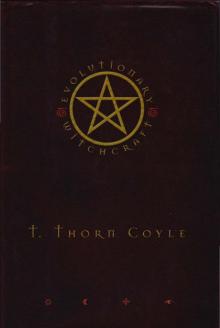 T Thorn Coyle Evolutionary Witchcraft (pdf)
T Thorn Coyle Evolutionary Witchcraft (pdf)![K J Emrick & Kathryn De Winter - [Moonlight Bay Psychic Mystery 01-06] - A Friend in; on the Rocks; Feature Presentation; Manor of; by Chocolate Cake; A-Maze-Ing Death (retail) (epub) Read online](http://freenovelread.comhttps://picture.efrem.net/img/nienyi/k_j_emrick_and_kathryn_de_winter_-_moonlight_bay_psychic_of_by_chocolate_cake_a-maze-ing_death_retail_epub_preview.jpg) K J Emrick & Kathryn De Winter - [Moonlight Bay Psychic Mystery 01-06] - A Friend in; on the Rocks; Feature Presentation; Manor of; by Chocolate Cake; A-Maze-Ing Death (retail) (epub)
K J Emrick & Kathryn De Winter - [Moonlight Bay Psychic Mystery 01-06] - A Friend in; on the Rocks; Feature Presentation; Manor of; by Chocolate Cake; A-Maze-Ing Death (retail) (epub)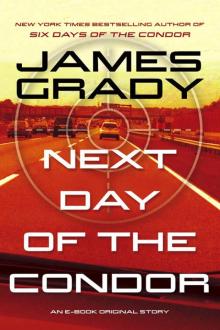 Next Day of the Condor
Next Day of the Condor Onyx
Onyx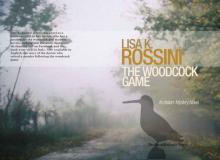 The Woodcock Game: An Italian Mystery Novel
The Woodcock Game: An Italian Mystery Novel Granta 122: Betrayal (Granta: The Magazine of New Writing)
Granta 122: Betrayal (Granta: The Magazine of New Writing)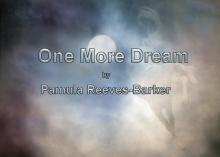 One More Dream
One More Dream Cosa Nostra by Emma Nichols) 16656409 (z-lib.org) (1)-compressed
Cosa Nostra by Emma Nichols) 16656409 (z-lib.org) (1)-compressed Cowboy by J. M. Snyder
Cowboy by J. M. Snyder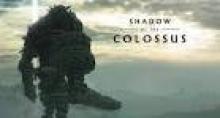 Colossus
Colossus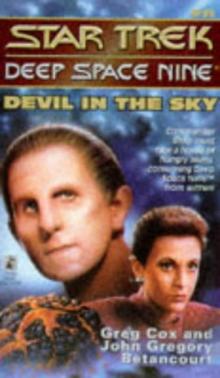 Star Trek - DS9 011 - Devil In The Sky
Star Trek - DS9 011 - Devil In The Sky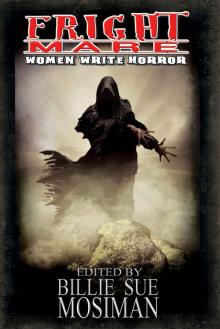 Fright Mare-Women Write Horror
Fright Mare-Women Write Horror The Future Is Japanese
The Future Is Japanese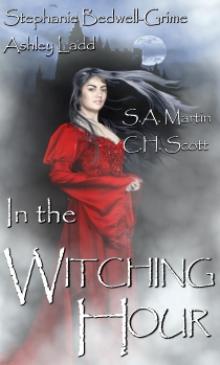 In the Witching Hour
In the Witching Hour Mammoth Books presents Wang's Carpets
Mammoth Books presents Wang's Carpets The Cradle King: The Life of James VI and I, the First Monarch of a United Great Britain
The Cradle King: The Life of James VI and I, the First Monarch of a United Great Britain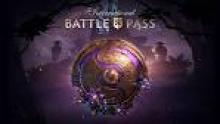 Stalking Moon
Stalking Moon Hostage To The Devil
Hostage To The Devil![Harris, Daisy - Mere Passion [Ocean Shifters 2] (Siren Publishing Classic) Read online](http://i1.bookreadfree.com/i/03/23/harris_daisy_-_mere_passion_ocean_shifters_2_siren_publishing_classic_preview.jpg) Harris, Daisy - Mere Passion [Ocean Shifters 2] (Siren Publishing Classic)
Harris, Daisy - Mere Passion [Ocean Shifters 2] (Siren Publishing Classic) Day, Sunny - Hot in Space (Siren Publishing Ménage and More)
Day, Sunny - Hot in Space (Siren Publishing Ménage and More) Five Books Of The Lives, Heroic Deeds And Sayings Of Gargantua And His Son Pantagruel
Five Books Of The Lives, Heroic Deeds And Sayings Of Gargantua And His Son Pantagruel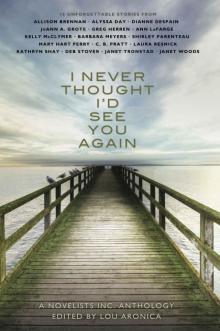 I Never Thought I'd See You Again: A Novelists Inc. Anthology
I Never Thought I'd See You Again: A Novelists Inc. Anthology Billion dollar baby bargain.txt
Billion dollar baby bargain.txt![Chenery, Marisa - Turquoise Eye of Horus [Egyptian Shifters 1] (Siren Publishing Classic) Read online](http://i1.bookreadfree.com/i1/03/26/chenery_marisa_-_turquoise_eye_of_horus_egyptian_shifters_1_siren_publishing_classic_preview.jpg) Chenery, Marisa - Turquoise Eye of Horus [Egyptian Shifters 1] (Siren Publishing Classic)
Chenery, Marisa - Turquoise Eye of Horus [Egyptian Shifters 1] (Siren Publishing Classic) Cat Magic
Cat Magic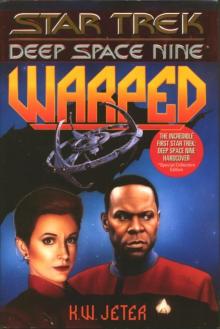 Star Trek - DS9 - Warped
Star Trek - DS9 - Warped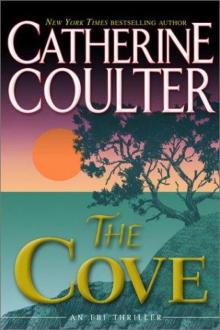 Catherine Coulter - FBI 1 The Cove
Catherine Coulter - FBI 1 The Cove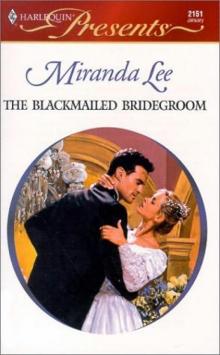 Miranda Lee -The Blackmailed Bridegroom
Miranda Lee -The Blackmailed Bridegroom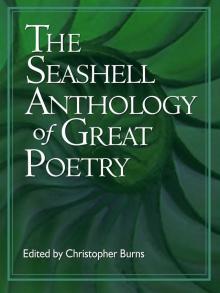 The Seashell Anthology of Great Poetry
The Seashell Anthology of Great Poetry Dragon Moon
Dragon Moon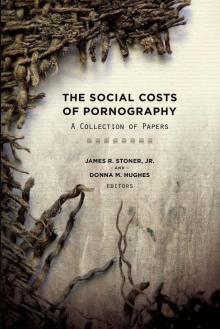 The Social Costs of Pornography: A Collection of Papers
The Social Costs of Pornography: A Collection of Papers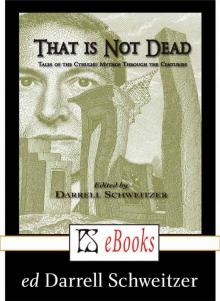 That Is Not Dead
That Is Not Dead Best New Horror: Volume 25 (Mammoth Book of Best New Horror)
Best New Horror: Volume 25 (Mammoth Book of Best New Horror) This Christmas by J. M. Snyder
This Christmas by J. M. Snyder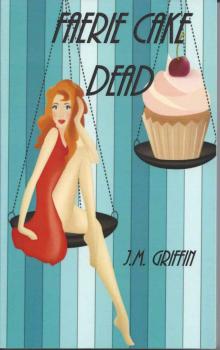 Faerie Cake Dead
Faerie Cake Dead CS-Dante's Twins
CS-Dante's Twins EFD1: Starship Goodwords (EFD Anthology Series from Carrick Publishing)
EFD1: Starship Goodwords (EFD Anthology Series from Carrick Publishing)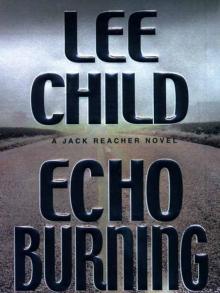 Echo Burning by Lee Child
Echo Burning by Lee Child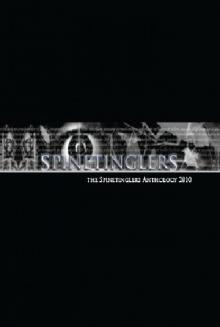 The Spinetinglers Anthology 2010
The Spinetinglers Anthology 2010 Wild Hearts
Wild Hearts Violet Winspear - Sinner ...
Violet Winspear - Sinner ...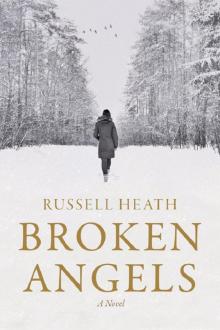 Broken Angels
Broken Angels FearNoEvil
FearNoEvil![Santiago, Lara - Range War Bride [Tasty Treats 11] (Siren Publishing PolyAmour) Read online](http://i1.bookreadfree.com/i1/03/30/santiago_lara_-_range_war_bride_tasty_treats_11_siren_publishing_polyamour_preview.jpg) Santiago, Lara - Range War Bride [Tasty Treats 11] (Siren Publishing PolyAmour)
Santiago, Lara - Range War Bride [Tasty Treats 11] (Siren Publishing PolyAmour) 8 Great Hebrew Short Novels
8 Great Hebrew Short Novels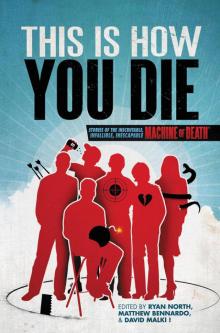 This Is How You Die: Stories of the Inscrutable, Infallible, Inescapable Machine of Death
This Is How You Die: Stories of the Inscrutable, Infallible, Inescapable Machine of Death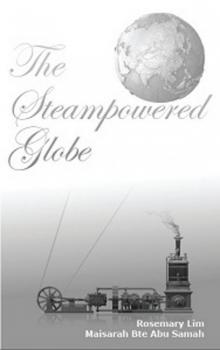 The Steampowered Globe
The Steampowered Globe While We Wait by J. M. Snyder
While We Wait by J. M. Snyder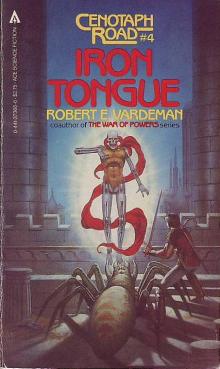 Iron Tongue cr-4
Iron Tongue cr-4![Stieg Larsson [Millennium 02] The Girl Who Played with Fire v5.0 (LIT) Read online](http://i1.bookreadfree.com/i1/03/31/stieg_larsson_millennium_02_the_girl_who_played_with_fire_v5_0_lit_preview.jpg) Stieg Larsson [Millennium 02] The Girl Who Played with Fire v5.0 (LIT)
Stieg Larsson [Millennium 02] The Girl Who Played with Fire v5.0 (LIT)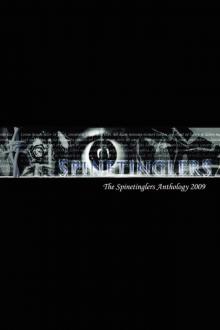 The Spinetinglers Anthology 2009
The Spinetinglers Anthology 2009 Bowles, Jan - Branded by the Texas Rancher (Siren Publishing Classic)
Bowles, Jan - Branded by the Texas Rancher (Siren Publishing Classic) Brown, Berengaria - Vivienne's Vacation (Siren Publishing Ménage and More)
Brown, Berengaria - Vivienne's Vacation (Siren Publishing Ménage and More)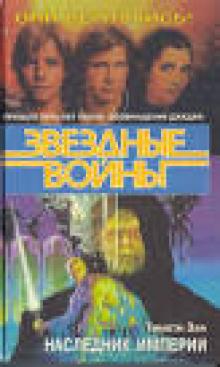 Inheritors
Inheritors Arthur Conan Doyle: A Life in Letters
Arthur Conan Doyle: A Life in Letters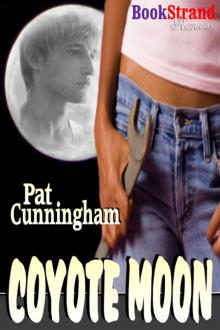 Cunningham, Pat - Coyote Moon (BookStrand Publishing Romance)
Cunningham, Pat - Coyote Moon (BookStrand Publishing Romance) Static Line
Static Line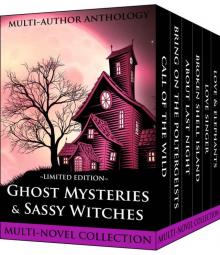 Ghost Mysteries & Sassy Witches (Cozy Mystery Multi-Novel Anthology)
Ghost Mysteries & Sassy Witches (Cozy Mystery Multi-Novel Anthology) Elizabeth Neff Walker - Puppy Love
Elizabeth Neff Walker - Puppy Love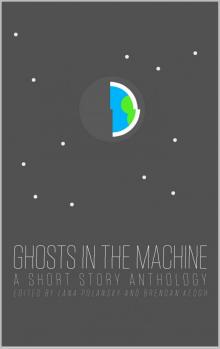 Ghosts in the Machine
Ghosts in the Machine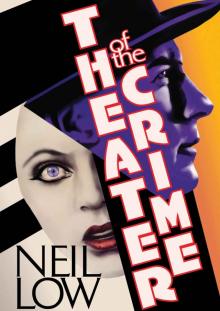 Theater of the Crime (Alan Stewart and Vera Deward Murder Mysteries Book 6)
Theater of the Crime (Alan Stewart and Vera Deward Murder Mysteries Book 6)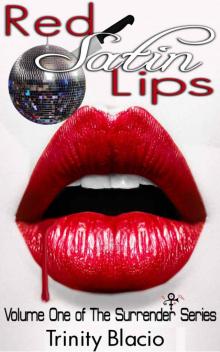 Red Satin Lips, Book One (The Surrender Series)
Red Satin Lips, Book One (The Surrender Series)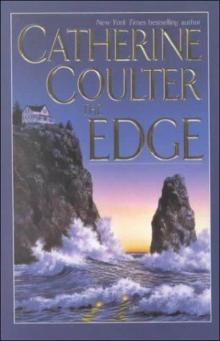 Catherine Coulter - FBI 4 The Edge
Catherine Coulter - FBI 4 The Edge StateoftheUnion
StateoftheUnion Fantastic Women: 18 Tales of the Surreal and the Sublime from Tin House
Fantastic Women: 18 Tales of the Surreal and the Sublime from Tin House Sara Wood-Expectant Mistress original
Sara Wood-Expectant Mistress original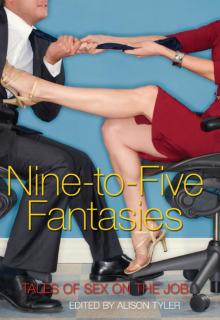 Nine-to-Five Fantasies: Tales of Sex on the Job
Nine-to-Five Fantasies: Tales of Sex on the Job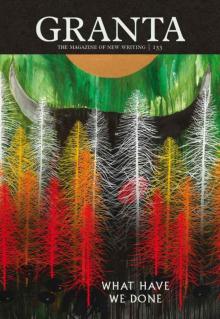 Granta 133
Granta 133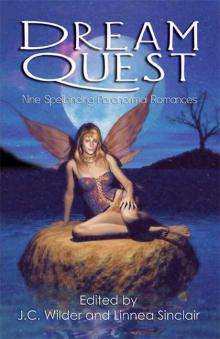 Dream Quest
Dream Quest The Warlock in Spite of Himself wisoh-2
The Warlock in Spite of Himself wisoh-2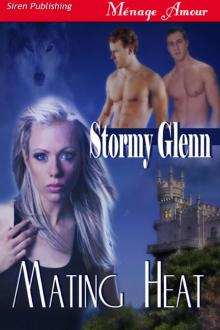 Glenn, Stormy - Mating Heat (Siren Publishing Ménage Amour)
Glenn, Stormy - Mating Heat (Siren Publishing Ménage Amour) Davis, Lexie - Toys from Santa (Siren Publishing Classic)
Davis, Lexie - Toys from Santa (Siren Publishing Classic) Once Dead, Twice Shy
Once Dead, Twice Shy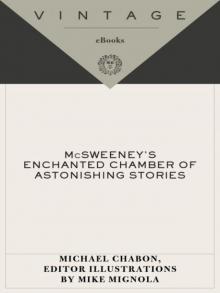 McSweeney's Enchanted Chamber of Astonishing Stories
McSweeney's Enchanted Chamber of Astonishing Stories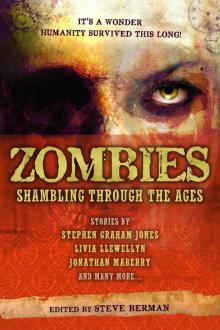 Zombies: Shambling Through the Ages
Zombies: Shambling Through the Ages Baghdad Without a Map
Baghdad Without a Map Banshee Cries (the walker papers)
Banshee Cries (the walker papers)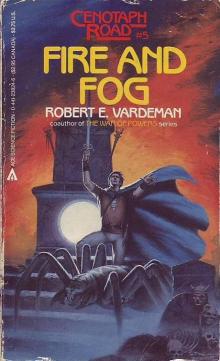 Fire and Fog cr-5
Fire and Fog cr-5 The Twelve Hot Days of Christmas
The Twelve Hot Days of Christmas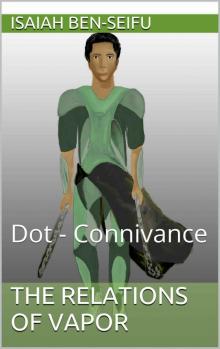 The Relations of Vapor: Dot - Connivance
The Relations of Vapor: Dot - Connivance![Harris, Daisy - Mere Temptation [Ocean Shifters 1] (Siren Publishing Classic) Read online](http://i1.bookreadfree.com/i2/04/11/harris_daisy_-_mere_temptation_ocean_shifters_1_siren_publishing_classic_preview.jpg) Harris, Daisy - Mere Temptation [Ocean Shifters 1] (Siren Publishing Classic)
Harris, Daisy - Mere Temptation [Ocean Shifters 1] (Siren Publishing Classic)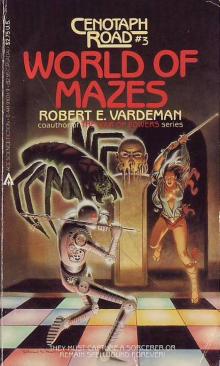 World of Mazes cr-3
World of Mazes cr-3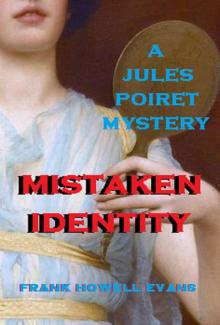 Mistaken Identity (A Jules Poiret Mystery Book 26)
Mistaken Identity (A Jules Poiret Mystery Book 26)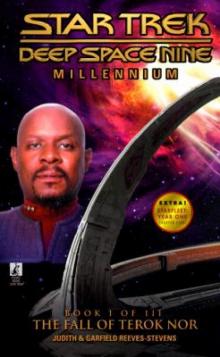 Star Trek - DS9 - Fall of Terok Nor
Star Trek - DS9 - Fall of Terok Nor Not Like I'm Jealous or Anything: The Jealousy Book (Ruby Oliver)
Not Like I'm Jealous or Anything: The Jealousy Book (Ruby Oliver) Skaterboy by J. M. Snyder
Skaterboy by J. M. Snyder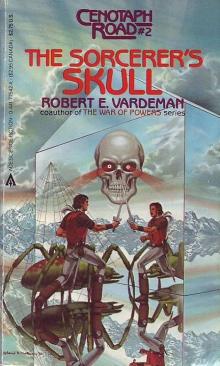 The Sorcerer_s Skull cr-2
The Sorcerer_s Skull cr-2 The Columbia Anthology of Modern Japanese Literature (Modern Asian Literature Series)
The Columbia Anthology of Modern Japanese Literature (Modern Asian Literature Series)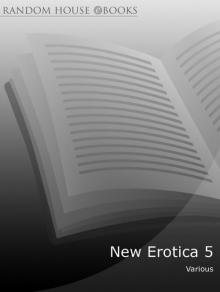 New Erotica 5
New Erotica 5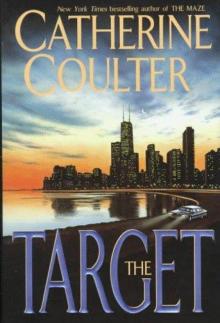 Catherine Coulter - FBI 3 The Target
Catherine Coulter - FBI 3 The Target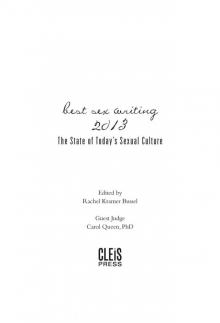 Best Sex Writing 2013: The State of Today's Sexual Culture
Best Sex Writing 2013: The State of Today's Sexual Culture Factoring Humanity
Factoring Humanity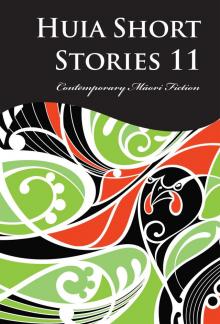 Huia Short Stories 11
Huia Short Stories 11 Call of the Wilds
Call of the Wilds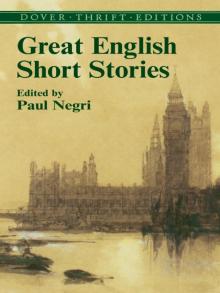 Great English Short Stories (Dover Thrift Editions)
Great English Short Stories (Dover Thrift Editions)![Ramagos, Tonya - Logan's Lessons [Sunset Cowboys 2] (Siren Publishing Classic) Read online](http://i1.bookreadfree.com/i2/04/10/ramagos_tonya_-_logans_lessons_sunset_cowboys_2_siren_publishing_classic_preview.jpg) Ramagos, Tonya - Logan's Lessons [Sunset Cowboys 2] (Siren Publishing Classic)
Ramagos, Tonya - Logan's Lessons [Sunset Cowboys 2] (Siren Publishing Classic)![Morgan, Nicole - Sweet Redemption [Sweet Awakenings 1] (Siren Publishing Allure) Read online](http://i1.bookreadfree.com/i2/04/10/morgan_nicole_-_sweet_redemption_sweet_awakenings_1_siren_publishing_allure_preview.jpg) Morgan, Nicole - Sweet Redemption [Sweet Awakenings 1] (Siren Publishing Allure)
Morgan, Nicole - Sweet Redemption [Sweet Awakenings 1] (Siren Publishing Allure)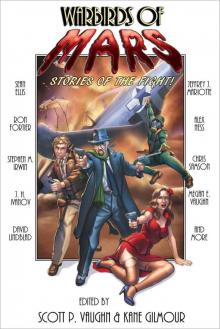 Warbirds of Mars: Stories of the Fight!
Warbirds of Mars: Stories of the Fight! Original Version of Edited Godwin Stories(lit)
Original Version of Edited Godwin Stories(lit) Where The Hell is Boulevard?
Where The Hell is Boulevard?![Chemical [se]X Read online](http://i1.bookreadfree.com/i2/04/13/chemical_sex_preview.jpg) Chemical [se]X
Chemical [se]X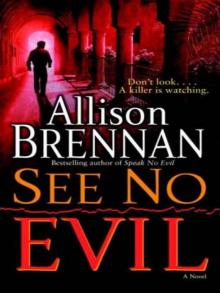 Allison Brennan - See No Evil
Allison Brennan - See No Evil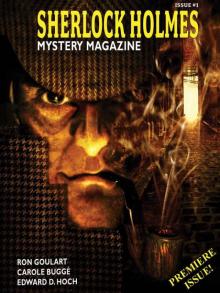 Sherlock Holmes Mystery Magazine #1
Sherlock Holmes Mystery Magazine #1